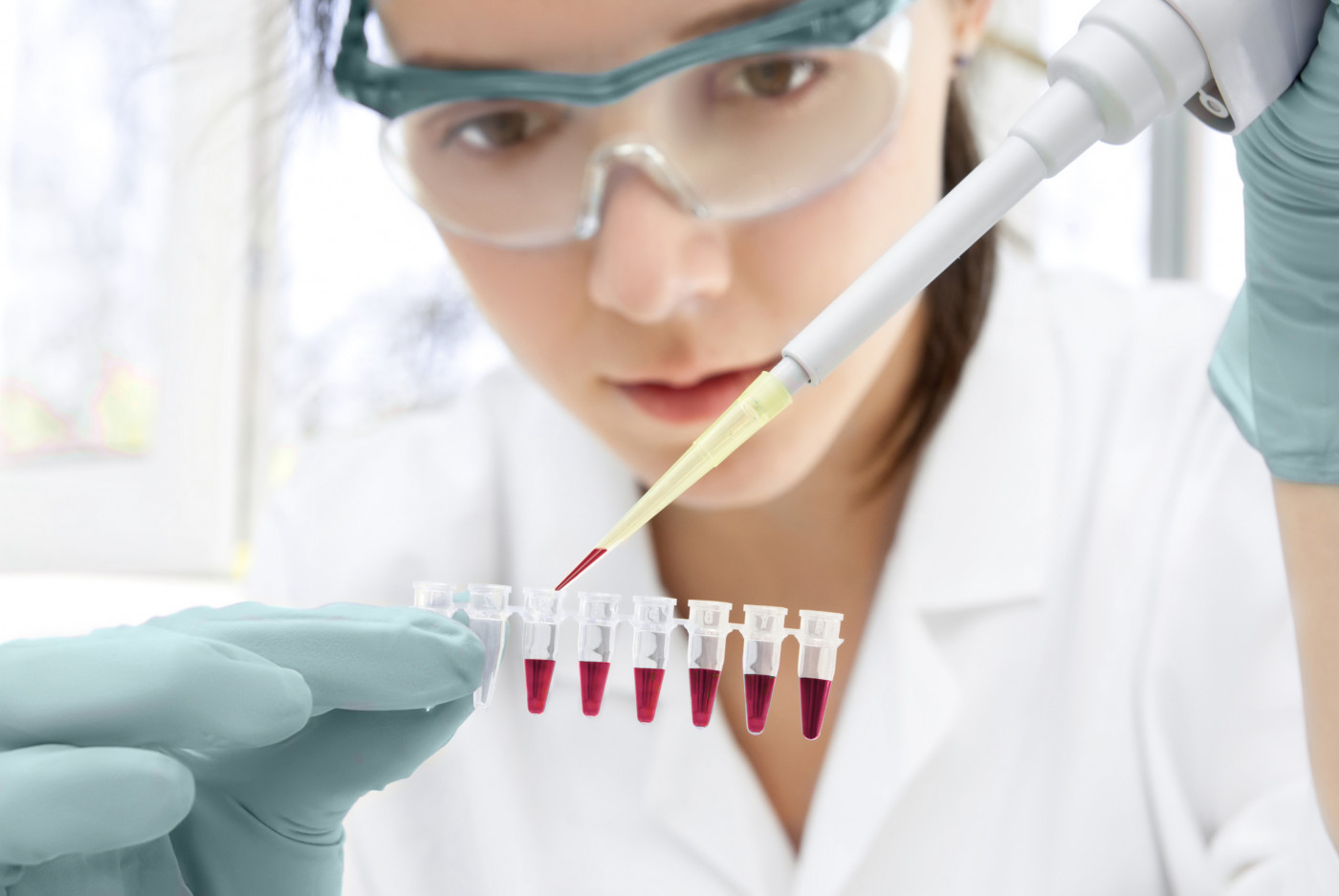Sugar Molecules in Yeast Cells Prevent Inflammation in Mouse Model
Written by |

anyaivanova/Shutterstock
A component of yeast cell walls — called MGCP — prevented disease in a mouse model of multiple sclerosis (MS) by activating anti-inflammatory immune T-cells while suppressing inflammatory T-cells, a study showed.
This work also supporting the microbiome’s role in affecting inflammation in autoimmune diseases like MS.
“We have successfully demonstrated that MGCP can selectively suppress inflammatory T-cells,” Sin-Hyeog Im, the study’s lead author, said in a press release. “This will help to provide a great turning point for a new anti-inflammatory treatment with no side effects that can selectively suppress the inflammatory response.”
The study, “Structural specificities of cell surface β-glucan polysaccharides determine commensal yeast mediated immuno-modulatory activities,” was published in the journal Nature Communications.
MS is an autoimmune disorder, in which the immune system attacks the myelin sheath, the protective coating around nerve fibers, resulting in inflammation and damage to nerves. Most MS treatments are designed to suppress the abnormal immune response to lower inflammation and protect this sheath. But suppressing the immune system overall increases the risk of infections. Therapies are needed that selectively limit immune attacks.
The body carries a wide array of microbes (the microbiome) such as bacteria, viruses, and yeast that regularly interact with the immune system. Chains of sugar molecules — or polysaccharides — derived from yeast can modulate immune function and are useful as therapeutic agents to activate or suppress immune responses.
Beta-glucans are a group of diverse polysaccharides, composed of glucose chains commonly found in yeast cell walls, that have been shown to enhance pro-inflammatory immune responses. A few studies have suggested, however, that beta-glucans also have anti-inflammatory properties.
The underlying mechanisms of how these polysaccharides exert opposing effects are largely unknown.
Researchers at Pohang University of Science and Technology (POSTECH) in the Republic of Korea, together with scientists at ImmmunoBiome, dissected yeast-derived beta-glucan polysaccharides to investigate their roles in modulating immune responses in cells and in animal models of autoimmune diseases.
The team started with a beta-glucan component on the yeast cell surface known as zymosan, which is mainly composed of layers of a beta-glucan called beta-1,3-linked glucan, along with small amounts of beta-1,6-linked glucan. These two beta-glucans are chains of glucose molecules with different linking connections and have slightly different shapes.
First, zymosan was mixed with dendritic cells, a specific type of immune cell. Once activated by a potential infection, dendritic cells travel to the lymph nodes and activate immune T-helper cells to initiate an immune response. This experiment showed that zymosan promoted the activation of T-helper cells.
To determine the precise roles of zymosan components, enzymes were then used to remove the beta-1,3-linked glucans selectively. Notably, zymosan without this beta-glucan significantly increased the activation of regulatory T-cells (Tregs), a different type of T-cell known to have anti-inflammatory functions and to suppress autoimmune processes.
Moreover, the activation of T-helper cells when mixed with this modified zymosan “was severely compromised,” which indicated that “the pro-inflammatory properties of zymosan that are primarily responsible for promoting [T-helper cell activation] are mediated by [beta-1,3-linked glucans],” the researchers wrote.
Based on these results, beta-glucans that dissolved in water were isolated directly from yeast extract, as beta-1,3-linked glucans are not water-soluble and are thus excluded. Consistently, these yeast extracted beta-glucans also activated anti-inflammatory Tregs.
Analysis of the water-soluble beta-glucans identified two polysaccharides: mannan and branched beta-1,6-linked glucan — together named MGCP. Mixing MGCP with dendritic cells simultaneously promoted Treg growth and suppressed T-helper cell activation in a dose-dependent manner. Further separation of these two components found that only beta-1,6-linked glucan was responsible for this effect.
To test the impact in vivo, mice were treated with MGCP after being exposed to a chemical that induced experimental autoimmune encephalomyelitis (EAE), which stimulates an immune attack on the myelin sheath and is used as a standard model for MS. Treatment with MGCP mostly prevented the mice from developing EAE. T-helper cells that produce the immune-stimulating signaling protein interferon-gamma were also suppressed.
MGCP was then evaluated in a second inflammatory mouse model for colitis — an inflammatory bowel disease (IBD) that causes swelling and ulcers (sores) in the digestive tract.
Treg cells generated by MGCP-treated dendritic cells were transferred to the colitis mouse model, and again prevented the disease from developing and suppressed the growth of T-helper cells producing interferon-gamma. MGCP dissolved in water and given orally also stopped inflammatory colitis from developing mainly by promoting the growth of Treg cells and suppressing disease-causing T-helper cell autoimmunity.
Further experiments identified a receptor on the surface of dendritic cells — called Dectin1 — that specifically interacted with MGCP to induce anti-inflammatory Tregs. Dendritic cells lacking Dectin1 were “significantly compromised for MGCP-mediated Treg cell induction,” the researchers wrote.
MGCP-treated mice that normally produce Dectin1 were also protected from developing EAE, whereas the protective property of MGCP did not exist in mice bred to be Dectin1-deficient.
Finally, T-helper cells suppression by MGCP was found to be mediated by the Toll-like receptor 2 on dendritic cells.
These findings showed that “administration of MGCP display robust suppressive capacity towards experimental inflammatory disease models of colitis and experimental autoimmune encephalomyelitis (EAE) in mice, thereby highlighting its potential therapeutic utility against clinically relevant autoimmune diseases” including MS, the researchers wrote.
They also noted that “by identifying immunomodulatory components of the yeast cell wall and by evaluating their functional contributions toward pro- and anti-inflammatory immune responses, we significantly advance our basic understanding on the mechanisms by which the immune system communicates with resident microbiome.”

